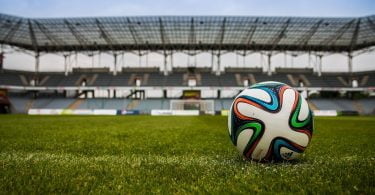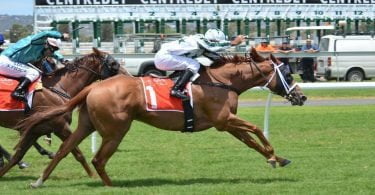To be the best you must increase expenditure in the modern world of football. That is a given.
To be the best you must increase expenditure in the modern world of football. That is a given. But this has come at great cost to clubs like Portsmouth and Leeds, both of whom we know all too well about the problems they have encountered in recent years. Many are also oblivious to the vast quantity of debt the likes of Real Madrid and Barcelona have accumulated – the former recorded debts of £296million in 2009, whilst the latter announced debts of up to £369.5million in 2010. Their saving grace, the support of their government. Rangers Football Club don’t have this luxury, but rank themselves up there in the higher echelons of Europe alongside these clubs, given their illustrious history and record both in Europe and domestic competition. However, this attempt to recapture their dominance has left Rangers in a position they could never have imagined themselves in.
Formed in 1872, Rangers are one of the biggest footballing institutions in the world; an old-fashioned, traditional club that has seen these values and ethics rewarded with success in abundance. Fifty-four league titles, thirty-three Scottish cups, twenty-seven Scottish league cups and a UEFA Cup Winners’ Cup later, Rangers find themselves in administration and in a perilous position indeed. They have experienced euphoric moments as a club, most notably winning nine league titles in a row from 1988-1997, and what they would give to roll back the years, but now there is a murky cloud of desperation and dysphoria that is hovering over the club.
It isn’t just the players, the management and other such staff that are affected by this dilemma, it is the staff that work tirelessly behind the scenes. These people need to pay their bills, to feed their families and without Rangers they are jobless. The fans must not be forgotten either. They are the ones who have filled the terraces and stuck with the club through lesser times. Their patience is to be tested now as many will feel let down by the club.
Reports have surfaced that Rangers owe the likes of Dunfermline Athletic £80,000 in gate receipts from a recent fixture, along with a similar payment required to Dundee United and £700,000 to Hearts for the summer sale of Scotland international Lee Wallace. Blinded by the lights of success and in denial of their financial situation has seen Rangers rack up a substantial bill, leaving the administrators to face an onslaught of questions as to how they ended up in this disastrous position. Those involved in the club are in fear of their futures, understandably so.
What must not be forgotten is the bigger picture. Rangers, along with Celtic, are the epitome of Scottish football. The league depends on their existence and participation in the competition as they attract lucrative sponsorship and television deals that the association are dependent upon. Without Rangers, Scottish football would not be the same. The league is almost insignificant now as Rangers have been docked 10 points and now trail league leaders Celtic by 14 points, although the gulf between Rangers, Celtic and the rest of the division is evident by Rangers advantage over third is still at 9 points, despite their deduction. Scotland’s First Minister Alex Salmond has said that Celtic ‘can’t prosper’ with Rangers in the position they are, sparking a furious response from the Celtic boardroom. However, his comments are thought provoking.
The future for Scottish football has looked bleak for many years now and is in serious need of revamping. The prospect of Rangers and Celtic moving to England has long been discussed, and maybe now is the best time for them to make this move. The football authorities in Scotland have looked at solutions to enhance football there, trying to find ways to close the gap on the dominant football nations across Europe. The most appropriate remedy for this may be Celtic and Rangers crossing the border, playing against better opposition and bringing in more revenue for the clubs. Rangers could certainly do with the money. But where does this leave the rest left in the abyss of Scottish football?
No one has been able to compete with either Rangers or Celtic for what seems an eternity now, with great football institutions like Aberdeen who have a decorative and proud history as a football club seem somewhat insignificant in the current climate. The Scottish Premier League is not as competitive as it once was; you only need to watch a game to see evidence of this. Scotland as a footballing nation are light years behind the worlds’ elite, reflected through their failure to qualify for a major international tournament since France 1998 and the performance of both Rangers and Celtic in European competition in recent years. The future of football in Scotland at this moment in time is desolate, as Rangers going into administration so glaringly highlights. Change is needed, urgently.
As Graeme Souness quite rightly pointed out, be under no illusion that if this can happen to a club like Rangers, do not think for a second that this cannot happen to a major English or European club. Many Premier Leagues clubs have been flirting with danger as it emerged this week that a number of them have been using the employee benefits trust scheme that has got Rangers into so much trouble; a recipe for disaster that could see the demise of clubs in England.
Rangers have stated that they have received ‘several expressions from parties not connected to the club’ that could save them from this nightmare. And what the staff and fans of Rangers would give to wake up tomorrow morning and this had been just a dream. But this is very real. The selling of Nikica Jelavic in January to Everton seems all too obvious as an attempt to conjure up the money to ease their debts, while the termination of players contracts looks ominous as the club look to reduce their overheads.
Whatever happens at Rangers, this has been a depressing few weeks for Scottish football, signaling the problems that they are facing and that a solution must be imminent or else there will be more casualties to follow.








